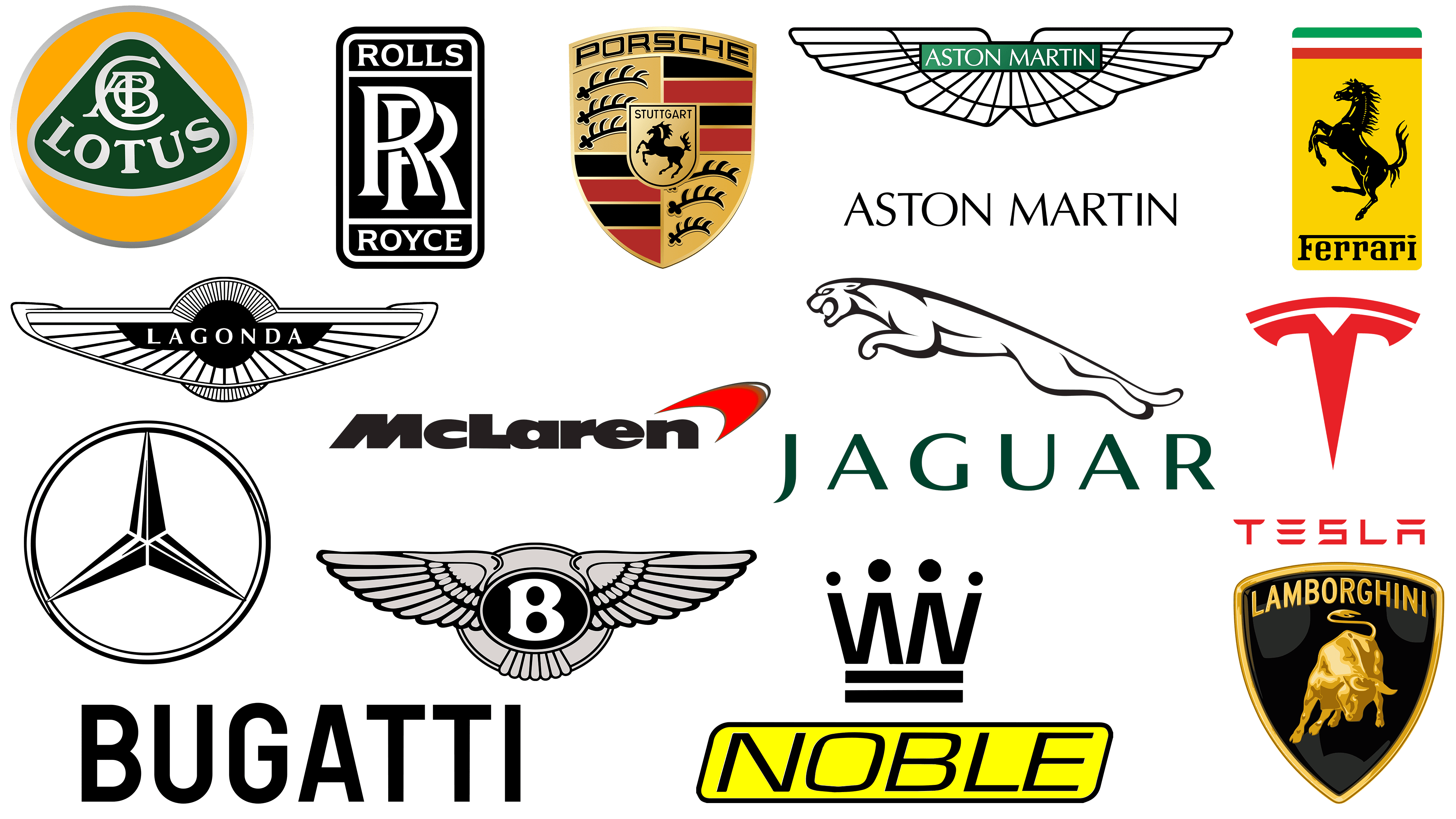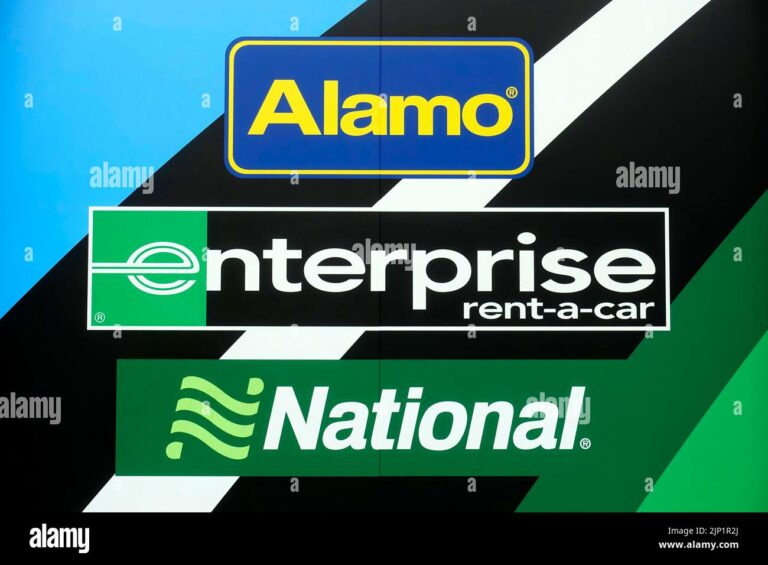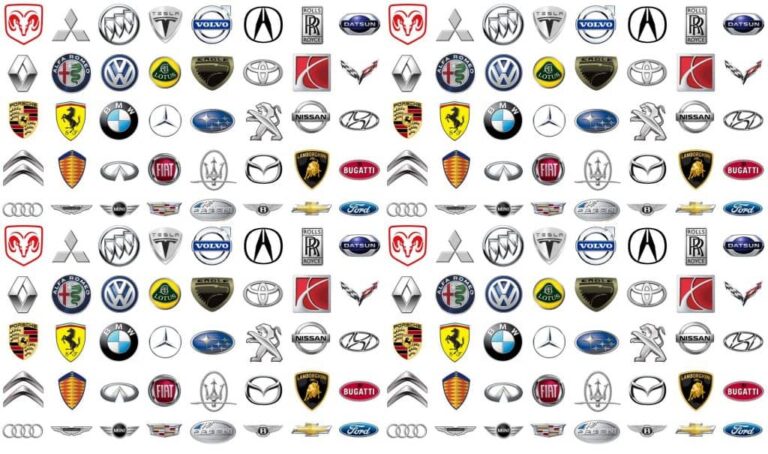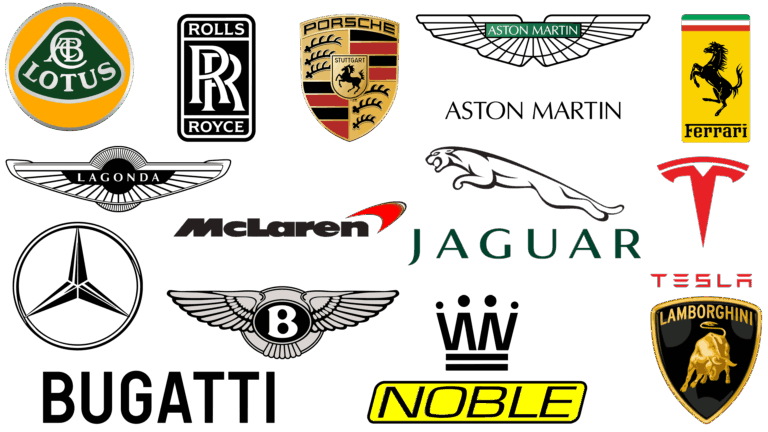Luxury Car Brand Names: A Comprehensive Guide to Automotive Prestige
Luxury Car Brand Names: A Comprehensive Guide to Automotive Prestige cars.truckstrend.com
In the realm of automotive excellence, few aspects command as much fascination and desire as luxury car brand names. More than just labels, these names represent the pinnacle of engineering prowess, design artistry, unparalleled comfort, and an exclusive lifestyle. They are synonymous with status, innovation, and a heritage built on decades, sometimes centuries, of meticulous craftsmanship. Understanding luxury car brand names isn’t just about recognizing famous marques; it’s about appreciating the philosophy, the legacy, and the unique promise each brand delivers to its discerning clientele.
This article delves deep into the world of luxury automotive brands, exploring what sets them apart, the various categories they encompass, and the critical factors that contribute to their enduring allure. Whether you’re an aspiring owner, an automotive enthusiast, or simply curious about the top tier of the car industry, this guide will provide a comprehensive overview of the names that define automotive luxury.
Luxury Car Brand Names: A Comprehensive Guide to Automotive Prestige
What Defines a Luxury Car Brand? Beyond Just the Name
While the brand name itself carries immense weight, it’s the underlying characteristics and values that truly define a luxury car. These aren’t merely expensive vehicles; they are products of obsession, built to exceed expectations in every conceivable way.
1. Exquisite Craftsmanship & Materials
Luxury cars are distinguished by their unparalleled attention to detail and the use of the finest materials. This includes hand-stitched leather interiors, real wood veneers, genuine metal accents, and even bespoke elements tailored to individual preferences. Every seam, every surface, and every component is meticulously crafted, often by skilled artisans, to deliver a tactile and visual experience of supreme quality.
2. Advanced Technology & Innovation
Luxury brands are often at the forefront of automotive innovation. They integrate cutting-edge technologies, from sophisticated infotainment systems and advanced driver-assistance features to groundbreaking powertrain designs and connectivity solutions. These technologies are not just gimmicks; they enhance safety, convenience, performance, and the overall driving experience.
3. Superior Performance & Driving Experience

Whether it’s the silent, effortless glide of a Rolls-Royce, the exhilarating roar of a Ferrari, or the refined power of a Mercedes-Benz S-Class, luxury cars offer a driving experience unlike any other. This is achieved through meticulously tuned suspensions, powerful yet smooth engines, precise steering, and advanced aerodynamics, all engineered to provide exceptional control, comfort, and responsiveness.
4. Exceptional Comfort & Amenities
Luxury interiors are sanctuaries on wheels. They feature plush seating with extensive adjustability, heating, ventilation, and massage functions. Advanced climate control systems, superior sound insulation, premium audio systems, and thoughtful amenities like integrated refrigerators or entertainment screens create an environment of ultimate comfort and tranquility for both driver and passengers.
5. Exclusivity & Prestige
A significant aspect of luxury is exclusivity. Many brands limit production numbers, offer extensive customization options, and cater to a select clientele. Owning a luxury car often signifies achievement and taste, offering a sense of prestige that extends beyond the vehicle itself.

6. Heritage & Legacy
Many prominent luxury car brands boast a rich history, with decades or even over a century of innovation and iconic models. This heritage contributes significantly to their allure, representing a continuous pursuit of excellence and a storied past that adds depth and character to the brand.
The Pantheon of Luxury Car Brand Names: A Deep Dive
The landscape of luxury automobiles is diverse, with brands specializing in different facets of opulence and performance. Here’s a breakdown of some prominent categories and their leading names:

1. Ultra-Luxury & Bespoke Brands
These brands represent the absolute zenith of automotive luxury, often hand-built to exacting standards with extensive customization options.
- Rolls-Royce: Synonymous with unparalleled opulence, silence, and bespoke craftsmanship. Known for models like the Phantom, Ghost, and Cullinan.
- Bentley: Blending British elegance with powerful performance, offering a more dynamic luxury experience. Models include the Continental GT, Flying Spur, and Bentayga.
- Bugatti: Focused on extreme performance hypercars with exquisite design and engineering, built for ultimate speed and exclusivity (e.g., Chiron).
- Pagani & Koenigsegg: Boutique manufacturers of incredibly rare, high-performance hypercars that push the boundaries of design and engineering.
2. High-Performance Luxury & Exotic Sports Cars
These brands prioritize raw power, exhilarating speed, and dramatic styling, often with a racing pedigree.
- Ferrari: The quintessential Italian sports car manufacturer, known for its passionate design, F1 heritage, and V8/V12 engines.
- Lamborghini: Bold, aggressive, and often flamboyant, Lamborghini offers an unmistakable blend of performance and design.
- McLaren: A pure performance brand, leveraging its Formula 1 expertise to create lightweight, technologically advanced supercars.
- Porsche: A unique blend of everyday usability and track-ready performance, with iconic models like the 911 and Panamera, along with luxury SUVs like the Cayenne and Macan.
3. Premium Executive & Luxury Sedan Brands
These brands offer a sophisticated balance of comfort, advanced technology, refined performance, and daily practicality.
- Mercedes-Benz: A pioneer in automotive luxury, offering a vast range from compact luxury to the flagship S-Class, known for innovation and comfort.
- BMW: Emphasizes "the ultimate driving machine," blending sporty dynamics with premium comfort and technology.
- Audi: Known for its sophisticated design, quattro all-wheel drive, and advanced technology integration, offering a modern luxury experience.
- Lexus: Toyota’s luxury arm, renowned for its exceptional reliability, serene interiors, and advanced hybrid powertrains.
- Genesis: Hyundai’s rapidly growing luxury division, offering compelling designs, strong value, and a focus on customer experience.
- Cadillac: America’s historic luxury brand, now focused on bold design, advanced technology, and powerful performance.
- Volvo: Prioritizes safety, minimalist Scandinavian design, and environmental responsibility, offering a distinctively modern luxury.
4. Luxury SUV Brands
As SUVs dominate the market, luxury brands have responded with opulent, high-performance, and incredibly capable vehicles.
- Range Rover (Land Rover): The benchmark for luxury SUVs, offering unparalleled off-road capability combined with supreme on-road comfort and prestige.
- Bentley Bentayga & Rolls-Royce Cullinan: Ultra-luxury SUVs from traditionally sedan-focused brands, bringing their signature opulence to the SUV segment.
- Mercedes-Benz G-Class, BMW X7, Audi Q8: Flagship SUVs from the premium executive brands, offering commanding presence, advanced tech, and spacious luxury.
5. Emerging Luxury EV Brands
The shift to electric vehicles is creating a new wave of luxury brands focused on sustainability, cutting-edge software, and silent performance.
- Lucid: Focused on extreme efficiency, range, and a minimalist yet luxurious interior (e.g., Lucid Air).
- Porsche Taycan & Mercedes-Benz EQS: Traditional luxury brands adapting their ethos to high-performance and ultra-luxurious electric platforms.
- Rivian: While more adventure-focused, its R1T pickup and R1S SUV offer a new interpretation of luxury, blending capability with premium features.
The Art of Branding: Why Names Matter
The name of a luxury car brand is far more than just a label; it’s a powerful symbol ingrained with meaning, aspiration, and identity.
Brand Identity & Recognition
A strong brand name like "Ferrari" instantly conjures images of speed, passion, and Italian flair. "Rolls-Royce" evokes ultimate luxury, serenity, and bespoke craftsmanship. These names are carefully cultivated to represent a distinct identity that resonates with consumers.
Perceived Value & Aspiration
Luxury brand names carry immense perceived value. They represent a benchmark of quality, performance, and exclusivity that justifies their premium price point. For many, owning a vehicle from a prestigious brand is a lifelong aspiration, symbolizing success and refined taste.
Storytelling & Heritage
Many luxury brands have compelling origin stories and a rich heritage that spans decades. The name itself becomes a vessel for this narrative, connecting current models to a legacy of innovation, design, and iconic moments in automotive history.
Market Positioning
A brand name helps position a vehicle within the competitive luxury market. It signals whether the car is about ultimate performance, unparalleled comfort, cutting-edge technology, or rugged capability, guiding consumers to the segment that best fits their desires.
Key Considerations When Choosing a Luxury Car Brand
Deciding on a luxury car is a significant investment. Here are practical considerations to guide your choice:
- Budget & Value Retention: Beyond the initial purchase price, consider depreciation, insurance, and potential maintenance costs. Some brands hold their value better than others.
- Purpose & Lifestyle: Are you seeking a daily driver, a weekend sports car, a family hauler, or a collector’s item? Your primary use will dictate the most suitable brand and model.
- Maintenance & Running Costs: Luxury cars, especially exotics, can have significantly higher service and parts costs. Research the reliability and typical maintenance schedules of your desired brands.
- Dealership Experience & After-Sales Service: Luxury brands pride themselves on exceptional customer service. Evaluate the local dealership’s reputation, service quality, and warranty offerings.
- Personal Style & Preference: Ultimately, your choice should align with your personal aesthetic and driving preferences. Test drive multiple brands and models to experience their unique characters.
Challenges & Evolution in the Luxury Car Market
The luxury car market is dynamic, facing several transformative challenges and opportunities:
- Electrification & Sustainability: The push towards electric vehicles is compelling luxury brands to innovate rapidly, balancing performance with range and sustainable practices.
- Autonomous Driving: Integrating advanced autonomous capabilities without compromising the "driver’s car" ethos is a complex challenge for many brands.
- Changing Consumer Demographics: Younger luxury buyers often prioritize technology, connectivity, and sustainability over traditional markers of luxury, prompting brands to adapt their offerings.
- Increased Competition: New entrants, particularly in the EV space, are challenging established brands, forcing continuous innovation and differentiation.
Table of Representative Luxury Car Brand Names and Estimated Entry-Level Prices
Please note that prices are highly variable based on model, trim, options, region, and current market conditions. These are estimated starting prices for entry-level models in USD and are subject to change.
| Brand Name | Typical Entry-Level Price Range (USD) | Key Attribute |
|---|---|---|
| Premium Luxury | ||
| Cadillac | $35,000 – $50,000 | Bold American luxury, advanced technology |
| Genesis | $40,000 – $55,000 | Excellent value, distinctive design, tech-rich |
| Volvo | $40,000 – $55,000 | Scandinavian design, safety, sustainability |
| Acura | $40,000 – $60,000 | Reliability, performance, value |
| Infiniti | $40,000 – $60,000 | Japanese luxury, distinct design |
| Executive Luxury | ||
| Audi | $45,000 – $70,000 | Sophisticated design, quattro AWD, technology |
| BMW | $45,000 – $75,000 | Driving dynamics, sportiness, innovation |
| Lexus | $45,000 – $75,000 | Reliability, refined interiors, hybrid options |
| Mercedes-Benz | $45,000 – $80,000 | Engineering excellence, comfort, prestige |
| Porsche | $65,000 – $90,000 | Sports car performance, luxury usability |
| Range Rover | $50,000 – $80,000 | Iconic luxury SUV, off-road capability |
| High-End & Ultra-Luxury | ||
| Tesla | $40,000 – $80,000 | Electric performance, cutting-edge tech, software |
| Maserati | $85,000 – $120,000 | Italian flair, distinctive sound, performance |
| Aston Martin | $150,000 – $200,000 | British elegance, grand touring performance |
| Ferrari | $250,000 – $300,000+ | Legendary sports cars, racing heritage, passion |
| Lamborghini | $220,000 – $280,000+ | Exotic design, extreme performance, boldness |
| Bentley | $240,000 – $300,000+ | British luxury, powerful engines, craftsmanship |
| Rolls-Royce | $350,000 – $500,000+ | Ultimate bespoke luxury, serenity, prestige |
| Bugatti | $3,000,000+ | Hypercar exclusivity, unparalleled speed |
Frequently Asked Questions (FAQ) about Luxury Car Brand Names
Q1: What exactly makes a car "luxury" beyond its price tag?
A1: Luxury cars are defined by a combination of factors: exquisite craftsmanship, premium materials, cutting-edge technology, superior performance, exceptional comfort, exclusive features, and a prestigious brand heritage. It’s about an elevated experience and attention to detail in every aspect.
Q2: Which luxury car brand is considered the most reliable?
A2: Lexus consistently ranks among the top for reliability in the luxury segment, often outperforming its European counterparts. Brands like Acura and Genesis also demonstrate strong reliability scores. However, reliability can vary by specific model and year.
Q3: Are luxury cars worth the extra cost?
A3: The "worth" is subjective. For those who value superior comfort, advanced technology, refined performance, exceptional design, and the prestige associated with owning a high-end vehicle, the extra cost is often justified. They offer an experience that mass-market cars cannot replicate.
Q4: What’s the difference between "premium" and "luxury" car brands?
A4: The distinction can be blurry, but generally, "premium" brands (e.g., higher trims of mainstream brands like Honda Accord Touring, or entry-level models from Audi/BMW/Mercedes) offer enhanced features and materials over standard vehicles. "Luxury" brands (e.g., Rolls-Royce, Bentley, high-end models from Mercedes/BMW/Audi) represent the pinnacle, focusing on bespoke craftsmanship, exclusive materials, and unparalleled refinement, often with a higher price point and greater prestige.
Q5: How do luxury car brands maintain their exclusivity and appeal?
A5: They maintain exclusivity through limited production runs, extensive customization options, high price points, a focus on heritage and storytelling, and exceptional customer service that caters to a discerning clientele. Continuous innovation, unique design language, and the promise of a superior driving and ownership experience also contribute to their enduring appeal.
Conclusion
Luxury car brand names are more than just badges; they are symbols of automotive artistry, technological innovation, and an unwavering commitment to excellence. From the serene opulence of Rolls-Royce to the exhilarating performance of Ferrari, each brand offers a unique interpretation of luxury, catering to diverse tastes and aspirations. Understanding what defines these brands, their distinct categories, and the considerations involved in choosing one empowers enthusiasts and potential owners alike. As the automotive world evolves with electrification and new technologies, these iconic names will continue to adapt, ensuring that the allure of luxury cars remains a powerful force, inspiring dreams and setting new benchmarks for generations to come.





